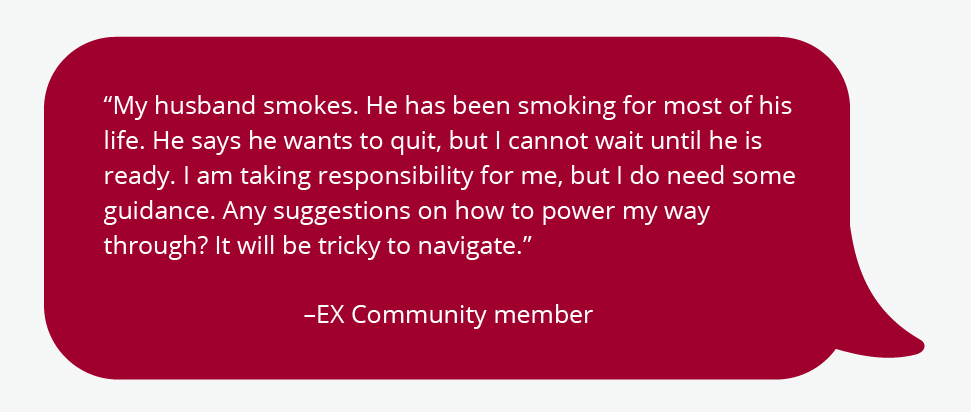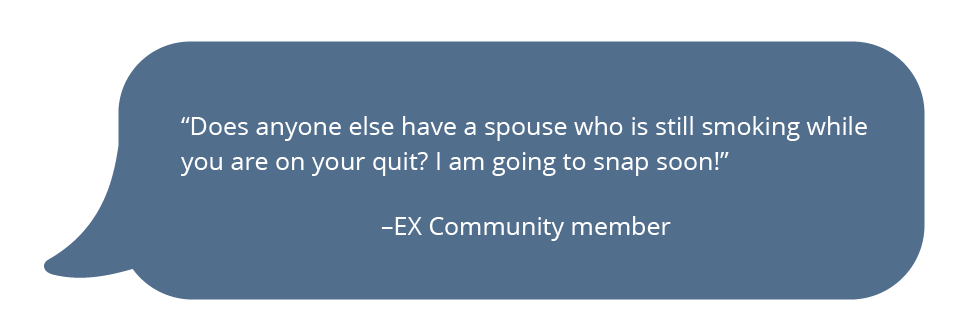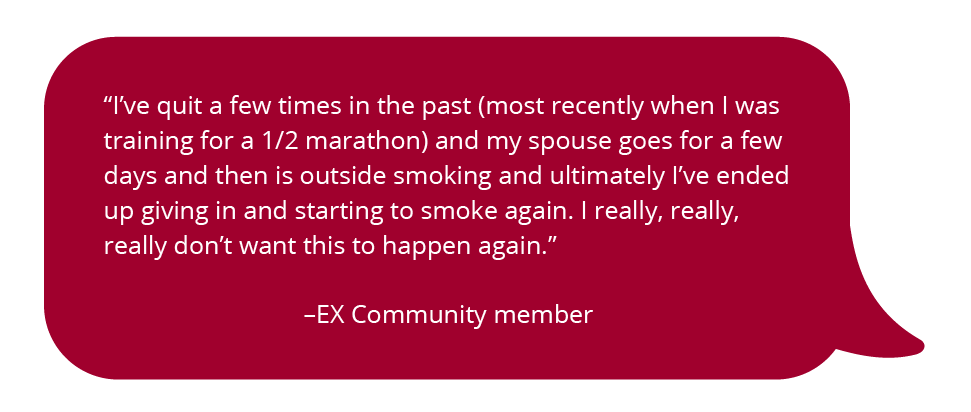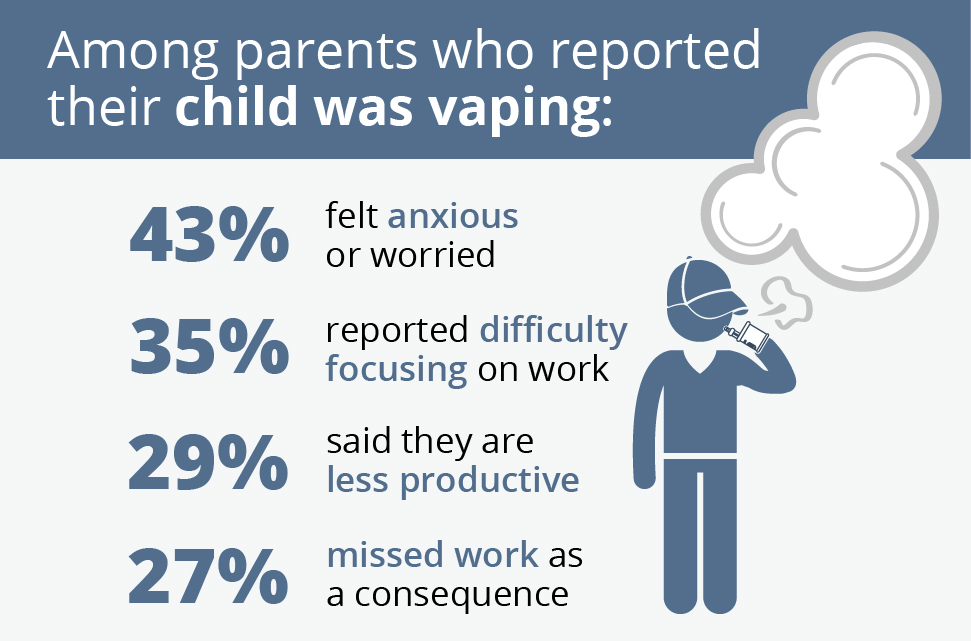When it comes to the benefits of tobacco cessation, employees and employers aren’t the only ones with something to gain.
As an employer thinking about 2022 benefits, you want employees to have a proven solution for changing tobacco use, but what about their family members? It tends to be an unwritten rule that support should be limited only to those on the payroll, but the fact is the effects of tobacco use go far beyond your employee pool.
You may believe it’s not your responsibility to help family members quit smoking. This type of thinking, however, is short-sighted. Similar to issues like stress, conflict, and caregiver burnout, what happens at home simply doesn’t stay there.
Benefits of tobacco cessation for employees and families
We see these struggles day in and day out in our EX Community and here is just a small sample of comments from real members:
One of the most notable difficulties when it comes to quitting can be seeing a partner light up, and having cigarettes close at hand for the employee to relapse.
Some key facts to consider:
The reality is that if you really want to help your employees quit, the best approach is to make a tobacco cessation program—with tobacco surcharges or incentives—available to spouses and adult dependents as well.
Plus, you may also want to think about offering your tobacco cessation program more broadly to support working parents, too.
A Truth Initiative report found that 2/3 of parents are very or extremely concerned about their teens and young adult children being negatively affected by vaping, and this can translate into being less productive at work.
Consider these stats from research published in a 2020 study in the Journal of Occupational and Environmental Medicine—led by Chief of Innovations Amanda Graham, PhD.
Because of these data, we provide tailored support through the EX Program to parents who are struggling to help a child quit vaping.
Say yes to spouses and adult dependents
When tobacco cessation programs are only offered to tobacco users themselves, they miss important influencers on employee health, namely, employee families.
To truly reap the benefits of tobacco cessation at your company, we recommend:
- Extending cessation support to spouses and adult dependents
- Extending incentives/surcharges to spouses and partners to quit
- Providing support to parents of kids who vape
And that’s where the EX Program comes in.
Developed in collaboration with Mayo Clinic, the EX Program comes from America’s largest public health non-profit, dedicated to making tobacco use a thing of the past—not just for your employees, but for everyone around them, too.
To learn more about the EX Program and the support we provide to employees, spouses/partners, and adult dependents, please visit our Program page.









